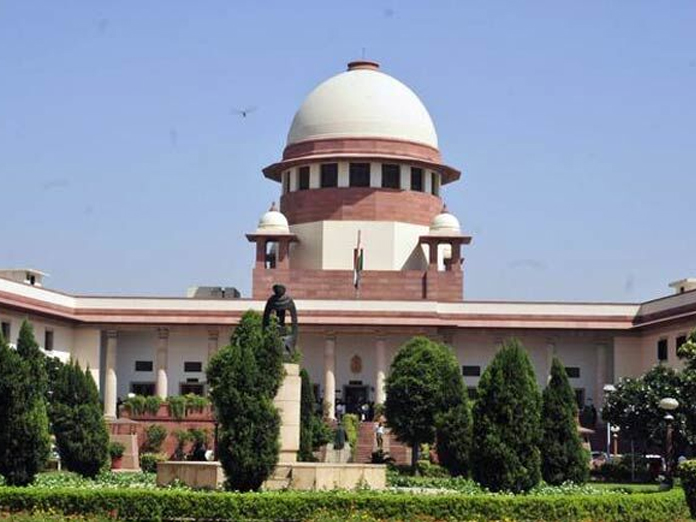Live
- Formula 1: Russell pips Sainz to take pole in Las Vegas GP
- People voted for ideology, rejected dynasty: Sudhanshu Trivedi on Maha victory
- AP, Telangana to receive rains for next three days as low pressure to turn depression
- Kailash Gahlot inducted into BJP’s Delhi election panel
- With state elections over, Indian stock market heads for stability
- Mahayuti's Ladki Bahin Brahmastra demolishes MVA in Maharashtra
- Actor and Youth Ambassador Darasing Khurana Highlights Mental Health Issues with Singapore PM
- Heavy FII selling in India to taper off soon, say market watchers
- Esports Mania Grips India: What are the Trends Fueling this Growth?
- AI-Powered CRM: Shaping the Future of Customer Relationship Management
Just In

The Supreme Court on Monday directed chief secretaries of all the states and Union Territories to hold a meeting in four weeks with the Union health secretary to chalk out a road map for setting up rehabilitation homes for people who have recovered from mental illness, and are fit to go home but are languishing in hospitals
New Delhi: The Supreme Court on Monday directed chief secretaries of all the states and Union Territories to hold a meeting in four weeks with the Union health secretary to chalk out a road map for setting up rehabilitation homes for people who have recovered from mental illness, and are fit to go home but are languishing in hospitals.
A bench of justices D Y Chandrachud and Hemant Gupta directed the Union Ministry of Health and Family Welfare to appoint a nodal officer to conduct the meeting.
The court, while hearing a petition filed by advocate Gaurav Kumar Bansal, directed all the states and UTs to provide full data to the Ministry of Home Affairs on the status of mentally ill patients who are now fit to go home but are unable to do so.
It said that the data provided by the states must include roadmap regarding setting up for rehabilitation homes and based on it the Union ministry will prepare a report to be submitted in apex court before the next date of hearing.
The court warned that non compliance of the order will be treated as contempt of court and posted the matter for further hearing on May 1.
Bansal in his plea has said that around 10,000 persons, who are fit to be discharged, are forced to live in different mental hospitals and institutes due to social stigma.
On October 3, 2018, the apex court had sought reports from all the states and Union Territories on the status of setting up rehabilitation homes for people with mental illness.
Several states and UTs have filed their response on the compliance of the Centre’s guidelines for setting up of rehabilitation homes for persons living with mental illness (who have been cured, or who do not need further hospitalisation, or who are homeless or are not accepted by their families).
Bansal had earlier said that except for few, many states and UTs have not complied with the order of July 10, 2017, in which they were asked to implement the guidelines prepared by Centre within one year period.
On July 10 2018, the apex court had taken on record the affidavit filed by Department of Empowerment of Persons with Disabilities of Union Ministry of Social Justice and Empowerment by which it had highlighted the guidelines for the state governments for setting up rehabilitation homes for persons living with mental illness.
The apex court had asked the Union Ministry to circulate the guidelines to all the state governments and UTs, with a direction to implement them within one year.
It had also directed the state governments to comply with the provisions of the Rights of Persons with Disabilities Act, 2016 and file a status report most definitely before August 1, 2018.
On February 14, the apex court had favoured framing of a uniform national policy to deal with those suffering from mental illness and their release from hospitals after being cured.
It had said that the issue concerned figured in the concurrent list of the Constitution and hence the Centre also has the authority to frame norms.
The PIL filed by Bansal has raised the issue of release of about 300 persons from various mental hospitals in Uttar Pradesh, alleging they were still languishing there despite being cured of their ailments and most of them belonged to poorer sections.
It has alleged that many underprivileged persons were still staying in mental hospitals despite being cured and there was no policy in place to ensure their well-being after release.
The plea also referred to responses received under with regard to the release of persons living in mental hospitals in Bareilly, Varanasi and Agra in Uttar Pradesh even after being cured.

© 2024 Hyderabad Media House Limited/The Hans India. All rights reserved. Powered by hocalwire.com







